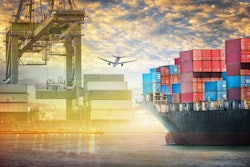
The recent dockworkers strike threatened to wreak havoc on US retail ahead of the holiday shopping season. It was a projected multibillion-dollar fallout, with JPMorgan estimating the economic loss between $3.8 billion to $4.5 billion a day. Ramping up to a key retail sales timeframe, this strike could have been crushing for the industry had it not been handled so quickly. As one of the latest “black swan” events to rock global supply chains, it also resurrected the conversation on supply chain planning and brought the importance of real-time information back into sharp focus.
This is where advancements in AI can be extremely beneficial to companies across verticals and geographies. Smart tools, clean data and automation provide the visibility needed to respond to disruptions in real time. As Deloitte declares, AI is a transformative technology for today’s supply chain managers. It is moving the industry toward a future where companies can circumvent issues and overcome challenges before it affects profitability.
Without leveraging AI and the latest technology, even the best laid plans are not as resilient as they need to be. This leaves businesses at risk of being sitting ducks when – not if – the next unforeseen event hits. Let’s explore how AI can support supply chains in the face of disruption.
The Impact of AI on Supply Chains
As history has shown us, businesses are vulnerable to natural disasters, geopolitical issues, or unprecedented global events. Though these events more commonly affect complex supply chains, it doesn’t mean these situations won’t impact businesses of all sizes. There are some key ways companies today are utilizing AI to support and strengthen supply chains:
Planning and Mapping
A solid data foundation fueling AI is essential to accurate, impactful decision-making and efficiency, and for the supply chain, it has the power to transform while anticipating, mitigating, and reducing challenges and negative impacts. In terms of planning, it is AI’s ability to quickly process huge amounts of data – both the structured and unstructured variety – that improves forecasting. With more accurate forecasts, functions like production and inventory management can be optimized to prevent stock-outs and effectively manage movement of products. For companies with various locations, this can become a critical competitive advantage.
When mapping supply chains, it is key to understand the relationships between the entities and functions that make up each infrastructure as they are essential for resiliency. New advancements in AI – like processing unstructured data along with structured data while breaking down silos – contribute immensely to this. When dealing with global supply chains specifically, for example, records like freight bookings and custom declarations are often documented in multiple languages and all types of formats. AI can unlock and digest the relevant data across each of these documents to help companies perform and communicate efficiently and effectively.
Supply and Demand
Where AI really shines is in the detection of demand changes in real time. It can look at things like point-of-sale data along with unstructured pieces of information like social media chatter and derive insights on unusual demand changes. These demand changes can stem from any number of things like product issues, new competition, viral social media promotions or even some other unique situation like panic buying ahead of impending weather events like hurricanes, wildfires or snowstorms. AI is also valuable for its ability to surface real-time data on traffic conditions at different ports and warehouses that are crucial for supply chains. By using AI to help identify the core of the demand issues and opportunities at hand, organizations can respond quickly and more precisely than ever before.
Responding to Disruption with Real-Time Solutions
This is what it all comes down to and where companies rise and fall – in speed and responsiveness to disruptions. AI enhances resiliency in the face of risk. Not only can companies detect a problem quickly with AI, but it also gives them more options for response strategies by conducting simulations. For example, AI can use company data, weather patterns and real-time signals on port traffic to advise shippers on alternate means and the costs associated with each choice. This takes a static response plan and makes it truly dynamic by showing companies the impact and recovery time from each scenario it surfaces, whether it’s price adjustments that need to be made or even a pivot on suppliers.
Building Stable Supply Chains
The recent dockworkers strike is just one more reminder that black swan events are unavoidable. It serves as a reminder to supply chain operators that embracing AI and the innovative capabilities it delivers is a critical future-proofing strategy and is best taken on before the next event inevitably takes place. Continued advancements in AI and new use cases throughout the supply chain show huge promise, particularly against the backdrop of uncertainty that continues to pervade the global economy.













